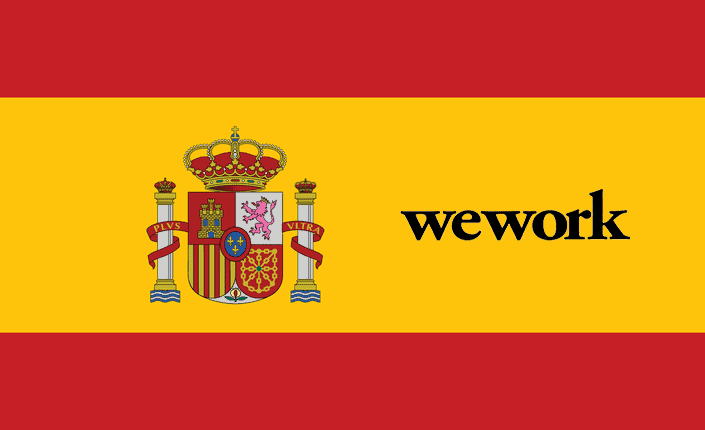
This article was written and published in Spanish and has been translated into English via Google Translate. Click here to read the original article.
WeWork, a coworking giant that's been preparing its debut at Nasdaq, is also still growing in Spain and is already on Regus' heels in the business of those known as flexible office spaces. In two years, the New York company practically matches Regus' market share in both Madrid and Barcelona thanks to the inaugurations of new centers.
A leader in flexible spaces in both cities continues to be Regus, a company created in 1989 and currently owned by IWC, a London-listed company. In Madrid it has a 17% market share and in Barcelona 19%, according to data until the second quarter of the year, provided by the real estate consultancy JLL.
But WeWork is shortening distances, especially in Madrid, since the US company has 16% of the market, four points more than three months ago. In Barcelona it reaches 18% of the surface.
WeWork was created in 2010 in New York by the Israeli Adam Neumann (the CEO who could keep more than 50% of the shares in his attempt to go public). He is the owner of more than 400,000 companies. The company unveiled in August, in a document sent to the SEC (the US market regulator) that already operates 528 offices in 111 cities in 29 countries, including Spain.
In Spain, it has seven centers and prepares the opening of another five. Specifically, in Madrid it operates four locations, in locations traditionally reserved for the most traditional offices, such as the axis of the Castellana, and will open another two in Fernando el Santo (near Genoa street) and in Goya. In the case of Barcelona, it has three buildings and will premiere one on Passeig de Gracia and another in the vicinity of Diagonal Mar.
This type of flexible spaces includes activities such as coworking, more traditional business centers or what is known in the sector as hybrid offices. These are alternatives to traditional offices, which implement versatile solutions to increase or reduce jobs for companies and are aimed at professionals as well as larger companies.
Along with Regus and WeWork, other firms such as Utopicus (subsidiary for this Colonial market), Spaces, Aticco (in Barcelona), Negocenter and Monday stand out.
The JLL study shows an increase in the contracting of these spaces in recent months. If in 2018 11% of the square meters of offices were of this type of solutions such as coworking, in the first six months 16% of the contracted area corresponds to this type of companies.
The WeWork case has shown that it is not necessary to own the properties, since they can be rented, similar to what a large hotel operator does not own the buildings. To these aspects, the American firm adds a groundbreaking design and a strong technological component for space management.
This article was written and published in Spanish and has been translated into English via Google Translate. Click here to read the original article.
Join us November 12-15 for the Property Portal Watch Conference Madrid 2019.
"*" indicates required fields
"*" indicates required fields
"*" indicates required fields
"*" indicates required fields